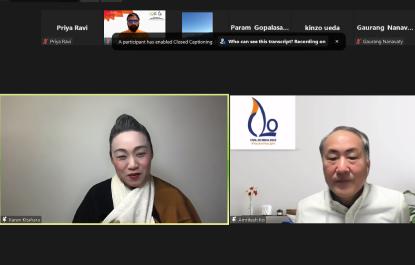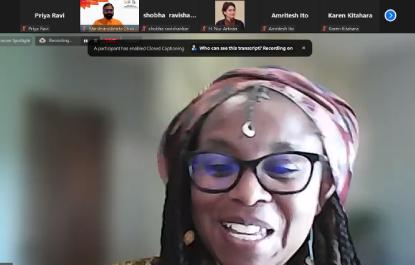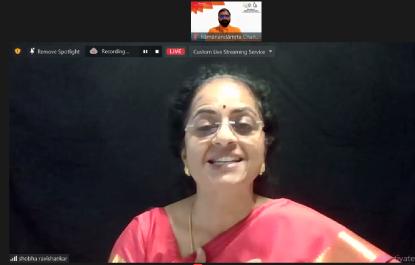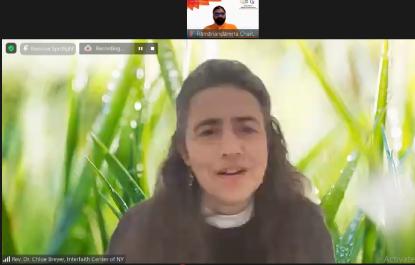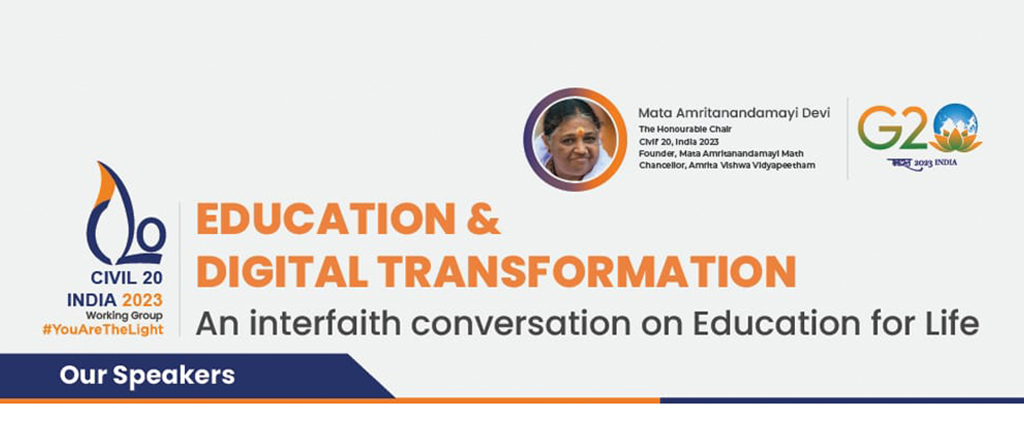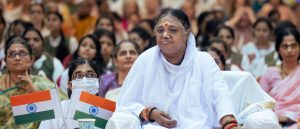Interfaith Conversation on Relevance of Spiritual Education
The Civil 20 Education and Digital Working Group recently organized an online event titled “An Interfaith Conversation on Education for Life” on April 25, 2023. With over 160 participants joining from representing 16 countries, the focus of the discussion was to explore the relevance of spiritual education as a form of education for life and meaningful ways to engage with children and youth across cultures.
The five distinguished panelists were Smt. Shobha Ravi, Acharya / Balvihar Curriculum Team, Chinmaya Balvihar, USA; Rev. Dr. Chloe Breyer, Executive Director, Interfaith Center of New York, USA; Dr. Rutendo Ngara, Co-Founder, Ancient Wisdom Africa, South Africa; Ms. Karen Kitahara, National Director, Koyasan Shingon Buddhism Missionary, Japan; and Ms. H. Nur Artıran, President, Rumi and Şefik Can Foundation, Turkey. The discussion was moderated by Br. Rāmānandāmṛta Chaitanya, Director M. A. Centers, and Professor, Amrita Univeristy.
Br. Rāmānandāmṛta Chaitanya said that C20 Chair, AMMA, says that there is education for life and education for living. Effective implementation of education for life can help address some of the most pressing global challenges. Adding that input from religious leaders is essential to identify evidence-based practices and formulating policies.
Rev. Dr. Chloe Breyer gave an overview of the Cathedral Church and the work undertaken in New York City amidst a challenging environment with a diversity of immigrants with diverse faith leaders. Rev. Breyer said they had developed a training program offering civics education to religious leaders, non-religious leaders, and social workers to better understand religious diversity in the workplace. Some recommendations include emphasizing interfaith education, respecting different perspectives, extending opportunities, and supporting women faith leaders.
Rev. Karen Kitahara is the chief priest of Daio-ji temple in Japan, which belongs to the Koyasan Shingon sect, following Esoteric Buddhism. Rev. Kitahara said that education should not be confined to classrooms and children must spend most of the time outside, in nature, which will help them gain physical and mental strength. Additionally, it will help them train their bodies and minds to be receptive to knowledge and traditional wisdom.
Rev. Hayat Nur Artıran emphasized the importance of universal oneness, respecting religious differences, and protecting human and spiritual and human values. Rev. Artıran said, “The main goal is to bring together people with various opinions and thoughts that seem opposite and contradictory and unite them in human values, and through this help them to create a project together to build personal individual peace and to build a peace in society as people and individuals first we should unite with nature.”
Smt. Shobhana Ravishankar said Bala Vihar helps children bloom, grow, and teach values through activity-based learning. It helps develop a child’s personality at all levels: physical, emotional, intellectual, and spiritual. All the values are taken from Hindu scriptures, mainly from Ramayan, highlighting the importance of Dharma and respect for the environment—the values of compassion, empathy, unity, tolerance, and acceptance.
Ms. Rutendo Ngara said that spiritual education can bring people together. It is integrative, experiential, and contextual and allows intergenerational knowledge transfer. Another essential point touched upon was the importance of nature-based education, which illustrated the benefits of adopting traditional learning methods.
